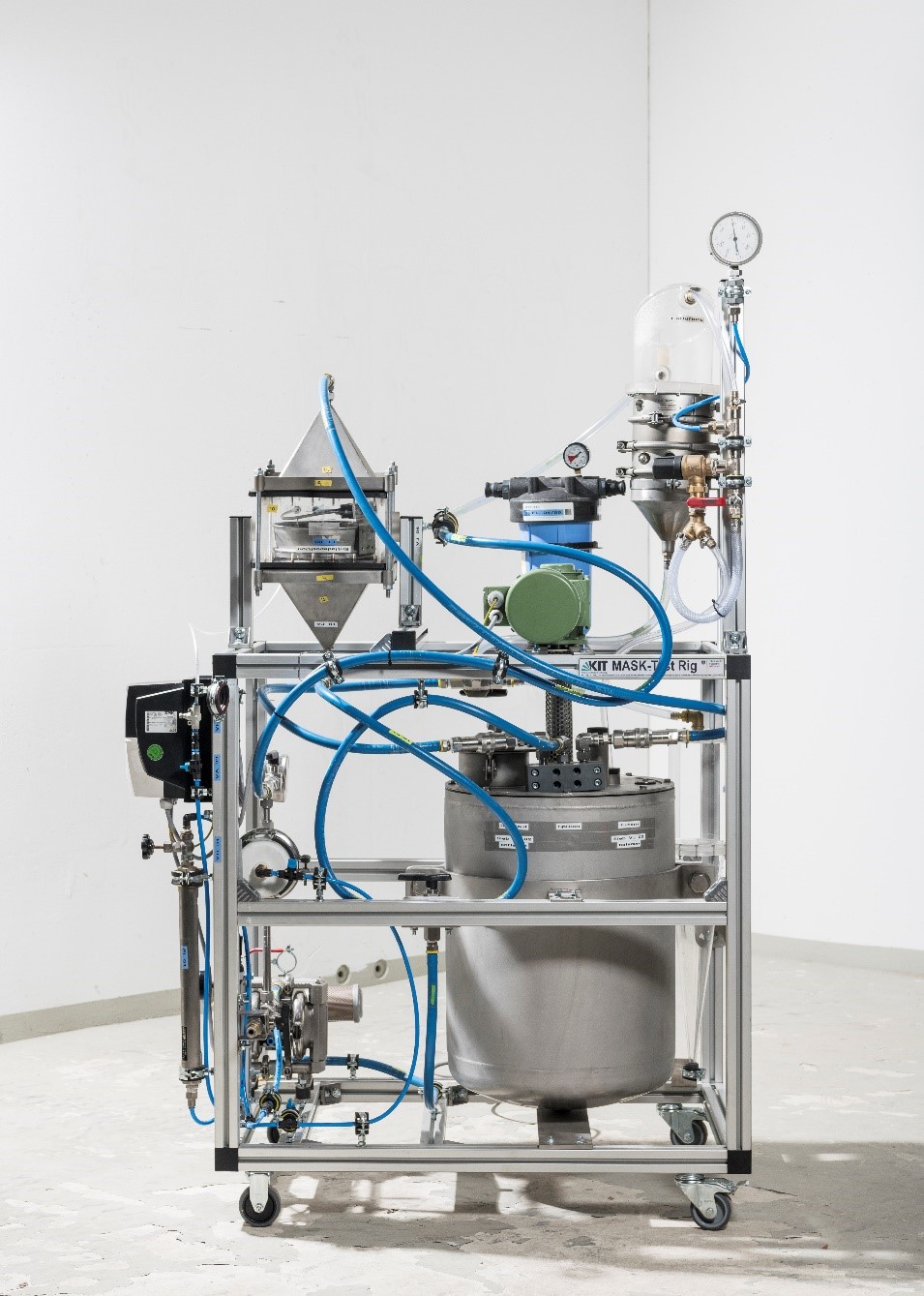Wet sieving and magnetic separation of grain mixtures to minimize secondary waste in the decommissioning of nuclear facilities Subproject: Experiments with non-radioactive materials (NaMaSK)
- Contact:
- Funding:
Federal Ministry of Education and Research
- Partner:
Institut für Nukleare Entsorgung (INE) des Karlsruher Instituts für Technologie (KIT)
- Startdate:
01.01.2021
- Enddate:
30.06.2024
One method for dismantling the reactor pressure vessel and its internals is the water abrasive suspension cutting process (WASS), in which the material is cut using a special high-pressure water jet. This process offers many technical advantages, but it has one major disadvantage, as additional secondary waste is produced. The addition of abrasive during WASS cutting produces a waste mixture of inactive abrasive particles and radioactive kerf material during the dismantling of steel components in nuclear facilities. The quantities of secondary waste generated in this way are considerable.
The aim of the KIT project "NaMaSK" (wet sieving and magnetic separation of grain mixtures to minimise secondary waste in the dismantling of nuclear facilities) is to separate the waste mixture (suspension of water, inactive abrasive particles and steel particles derived from the radioactive steel) originating from the WASS cut. First, the fine fraction is sieved, then filtered off and the coarse fraction retained in the sieve is treated with a magnetic filter. The screening process and the magnetic separation of the steel particles produce a screened abrasive that can be fed back into the WASS system for re-cutting. It was demonstrated that the secondary waste can be reduced by 50-75 % with a separation plant in batch operation. However, the batch operation had considerable limitations, so that a transfer to continuous operation is necessary. The aim of the project is to develop a new separation system in continuous operation, for which a closed and continuous sieve and magnetic filter system must be determined and a new process scheme will be developed and tested.
KIT-INE will also test the use of corrosion inhibitors with subsequent processing of the grain mixtures to enable the cutting of ferritic steels.

waste from the water-abrasive-suspension-cutting
© KIT-TMB

